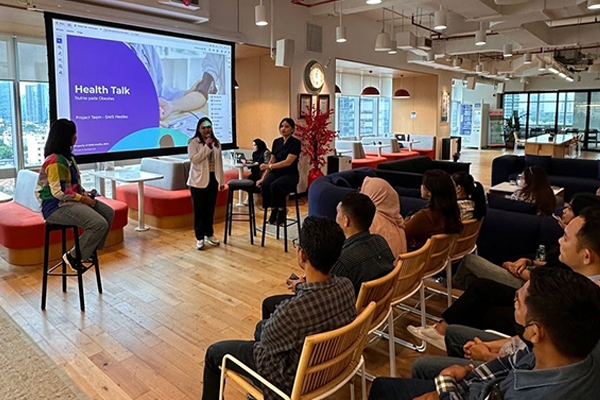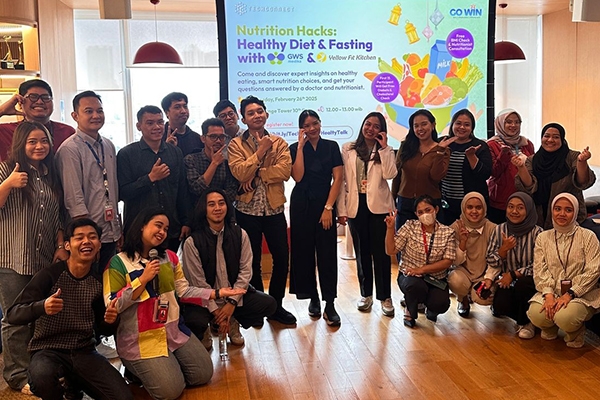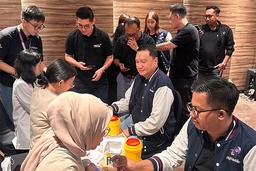Nutrition and Physical Activity for Obesity

PT TechConnect held a Health Talk session entitled “Nutrition and Physical Activity for Obesity” at Sinarmas TechConnect, MSIG Tower (26/1), featuring dr. Anindita Prasidha P from GWS Medika as the main speaker.
This topic was chosen to raise awareness of the importance of choosing nutrition and physical activity, especially for individuals with obesity, during busy times, to help them stay fit and enhance their quality of life.
Understanding obesity and its impacts
In her session, dr. Anindita explains various aspects of obesity, including how to measure Body Mass Index (BMI) and waist circumference as health indicators. She also explained the causes of obesity and its long-term impacts on health, such as increased risk of heart disease, diabetes, and other metabolic disorders.
Weight loss strategies
Several effective strategies for losing weight are also discussed in this event, such as:
- Managing calorie intake by choosing healthy and balanced foods.
- Doing physical activity regularly according to WHO recommendations.
- Understanding various dietary approaches tailored to individual needs.
- Consult a doctor for further action, including more specific invasive methods.
Challenges in managing weight

In the Q&A session, participants expressed their struggles with managing weight despite maintaining a healthy lifestyle. One interesting question was asked: "Why do some eat a lot but don't gain weight, while others gain weight quickly even when they eat very little?"
dr. Anindita responded, "This is due to differences in metabolism. Some people remain slim despite eating more because their metabolic rate is higher. Others gain weight more easily due to a slower metabolism. Factors such as genetics, body composition, and physical activity levels also play a significant role in weight regulation."
Another participant asked. "I have exercised regularly since I was young. Why is it so hard to maintain my weight now?"
"As we age, our metabolism tends to slow down, muscle mass decreases, and hormonal changes occur, making it easier for the body to store fat. Although regular exercise helps, the type of exercise done and its intensity, food choices and eating patterns, sleep quality, and stress levels also affect weight management," explained dr. Anindita.
Intermittent fasting and stomach acid
One of the topics that caught the attention of participants was the safety of intermittent fasting for people with stomach acid issues.
dr. Anindita advised that such individuals consider a gentler fasting pattern, like 12:12, and avoid foods that may trigger stomach acid reflux when breaking their fast. She also emphasized the importance of consulting a doctor before trying a particular diet method to ensure it is safe for one’s health condition.
This event provided in-depth insight into how to maintain health through diet and physical activity that suit the needs of each individual. With greater awareness of the importance of a healthy lifestyle, participants are encouraged to apply what they have learned to improve their daily habits and overall well-being.


